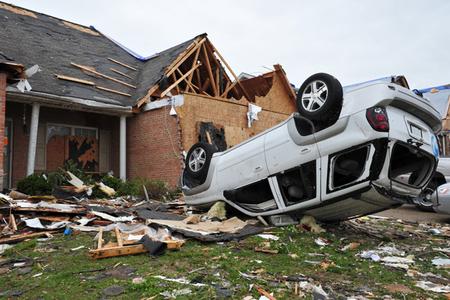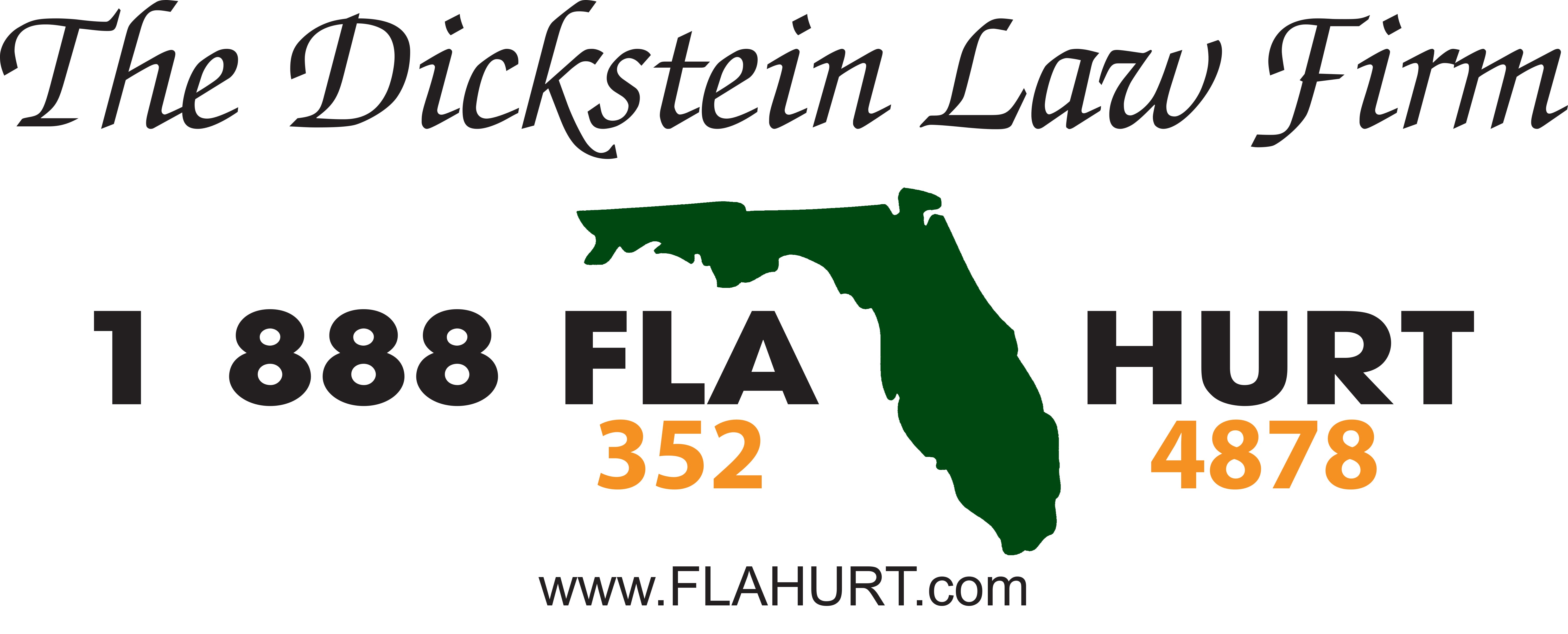Hurricane Damage | Property Loss
Florida is known as the storm capital of the nation. Given where we are located and the change in temperature in the Atlantic and Gulf of Mexico, it’s a miracle we have not been exposed to more loss. Nevertheless, the citizens of our state have repeatedly taken a hit, and it’s imperative that owners of homes, automobiles, boats and/or anything of value make sure they are protected and covered for these kinds of losses.
Below find some important answers to common questions raised following a hurricane loss.
Contact The Dickstein Law Firm for your hurricane damage/ property loss issues. We are here to help.

A: In most cases, no. Insured property owners should be getting coverage for some or all the damage caused by the hurricane.
What matters is:
Location: Where your home is/was located (coast versus inland, path of the storm)
Causation: The cause(s) of the damage, (wind, wind-driven rain, trees or other falling objects, and the source of any water that entered your home)
Words: The specific wording of the exclusion for flood damage in your homeowners’ policy.
Laws: The laws in your state relating to insurance claims, contracts and unfair business practices.
Politics: (Whether or not your elected and appointed public officials are willing to put pressure on insurance industry representatives to pay fairly and promptly)
You: Your willingness to take whatever steps you need to take to make your insurance company fulfill the promises they made to you and meet their obligations under the laws of your state. There are many reasons why the adjuster may be wrong when he or she tells you damage to your home is excluded because it was caused by flooding.
A: Insurance companies are profit-making businesses and their employees are not social workers. Their goal is to close your claim quickly and without paying a dime more than necessary. Your adjuster may be friendly but he or she is not your friend.
Insurance companies are naturally trying to control their payouts after a devastating disaster. There is a lot of confusing wording and legalese in insurance contracts and there are laws to protect you from getting taken advantage of.
Many insurance companies are reading their policies with a bias that is too much in their own favor and against their policyholders. If you’re like most people, your home is your biggest asset. Don’t accept an insurance company’s denial of your claim without getting other opinions on the causes of the damage and the wording of the exclusion.
You paid good money for insurance protection. There are laws that protect you against unfair treatment.
A: No. If there’s any evidence of water coming in through any type of opening (such as a damaged roof, siding, window frames, etc.), the wind was a triggering cause and it should be covered. Where there’s no way to tell whether the standing water came from rising or falling water, the damage should be covered, unless your policy has the kind of “anti-concurrent causation” exclusion.
A: See question #1, above. Although a storm surge may have washed away or severely damaged your home, it was first hit by heavy winds. By the time the water wiped out your home, some percentage of it was already destroyed by wind and rain. Wind and wind-driven rain damage is covered under standard homeowners insurance policies. Experts say that every ten miles per hour of wind will drive water one inch up a vertical wall. That means a one hundred mile per hour wind can drive rain and debris up and under the roof and into your home.
Suppose the storm surge, caused by low pressure, was 10 feet, but wind caused waves on top of the surge that came up another 4 feet. If your home is at 12 feet and was damaged – wasn’t it the wind that caused the damage?
A: Frustrating delays, rotating adjusters, wrong information about what’s covered and what’s not, “lowball” repair estimates and settlement offers, (lowball means unfairly low – rip-off), and what many people describe as a “second nightmare” of being treated badly by the company they trusted for many years.
A: No. We surely hope you don’t.
A: Maybe not. If you live near the coast and the agent or insurance company hid this important exclusion in small print and didn’t tell you about it before the hurricane, you’ve got a good argument that it’s an “unenforceable exclusion”. If your arguments fall on deaf ears, consult a lawyer, but make sure you follow UP’s tips before choosing one. If you knew the exclusion was in the policy and you bought it anyway, you’re in a very tough spot.
A: The following items should be covered under your homeowners’ policy regardless:
Loss of food by spoilage due to electrical outages, or damage from power surges related to storms
Damage to your motor vehicle may be covered under comprehensive coverage on your auto policy.
Falling tree damage.
A: Some insurance companies have the reputation of being fairer and more prompt in handling claims than others, but it’s hard to predict what’s going to happen in this unprecedented situation. Working together with neighbors, following UP’s claim tips and using the materials in your three-ring binder will really increase your chances of getting treated well.
A: Hopefully not. If you are under-insured and you document that fact clearly to your insurance company by showing them the estimates, they should cut you a check for your policy limits ASAP and not hold back any portion of what you’re owed. Once you get that check, research your options for collecting the balance of what you should have been insured for, starting at the claim tips relating to “underinsurance”.
A: Get a second opinion before rebuilding on an existing slab/foundation. Concrete can “fail” due to damage that an untrained eye won’t see. Most adjusters have no training in concrete science.
A: Labor and material costs always go up after disasters due to supply, demand and greed. Your insurance company owes you for what it will cost in real life, not on paper (up to your policy limits). Guideline pricing is something insurance companies use to predict how much materials and labor should cost. This system is often a problem because reality demands flexibility. No one can accurately predict how much prices will change after a disaster – especially one this big. Take plywood for example – its price fluctuates wildly and can vary from $12 per sheet up to $25 per sheet in a post-disaster scenario. That doesn’t make it right, but it’s not fair or legal to make you wait until things stabilize to start repairing/rebuilding your home.
Roofs are a highly contested item – if the insurance company’s pricing is $150 per square foot but the market price is $240, keep all receipts and demand the difference along with all amounts the insurance company “held back” due to ACV rules. (See UP Tips for details)
The National Flood Insurance Program has pricing lists of what they’ll pay pre-repair, if your pricing increases you can go back with a supplemental claim and they should pay the adjusted price.
A: If you’re planning to rebuild/repair and stay in the area and are willing to live in a trailer, negotiate with your insurer to “cash out” your ALE coverage limits so you can buy a trailer or motor home with your ALE policy limits instead of using the money to pay rent.
Insurers have not been offering this option but they should be. With a disaster of this size – you’re going to need every penny of ALE coverage and then some to cover your living expenses while you’re out of your home. Negotiating a cashout gives you flexibility and saves you from having to submit more receipts and paperwork to your insurance company.
A: This is a common problem with some insurance companies and it’s unfair and in some states – illegal. Overhead and profit, (“O & P”) is a known expense that all contractors charge, usually at a rate of 10% and 10%. An insurer that holds back O & P until repairs are completed puts the property owner in an impossible financial position. It is wrong for your insurance company to hold back O & P until your home is completely repaired. If you have a flood insurance policy, check the NFIP bulletis for specific items that are covered.
A: Read and follow UP’s Claim tips. Depreciation is subjective – not a science. Each adjuster makes his or her own decisions on how much and which items they depreciate. That means it’s up to you to argue for more reasonable numbers. And, not everything in your home is subject to depreciation. For example, paint, vinyl and roofing are exposed to the elements so of course they deteriorate and are subject to depreciation. The underlying materials that held your home together – studs, cement, rebar, framing – are not. Studs can last 200 years – don’t allow your adjuster/insurer to depreciate those items.
Adjusters and insurers rarely volunteer to tell you that if you submit receipts for items you replace they must pay you the difference between what they paid you for the item’s Actual Cash Value (ACV) and what it actually cost you. (If you have a Replacement Cost, not strictly ACV policy)
A: It’s normal and fine not to remember much after a traumatic loss. Take your time and don’t rush – 99% of all disaster victims can’t remember even most of what they had – even after months and years after their loss. The best you can do is follow UP’s contents claim tips and get as much help as you can.
If you allow yourself to be rushed into a fast settlement you are definitely going to underestimate what you had and get less than you’re entitled to. Don’t forget about claiming taxes, transportation and shipping costs associated with replacing items. UP offers sample inventory forms and lists at our website.
A: NO. Your insurer owes to restore your property to its pre-loss condition subject to the dollar limits of your coverage. The appearance of your home after repairs have been made is legally supposed to be “uniform and consistent”.
UP has gotten reports that insurance companies’ accountants are telling them they can save money by not paying to match vinyl siding, roofing and carpeting. UP has gotten reports that adjusters were told in Mississippi and Louisiana “we do not match siding, bricks, paint or carpet in this state”. That is just absurd and unfair. Don’t stand for it.
A: This is a very, very common problem. If you’ve submitted all the information your insurance company needs to pay your claim, written follow up letters and made phone calls to higher-ups in the company but nothing’s worked, consider “Mediation” or “Appraisal” to resolve the difference.
Mediation is an informal way of resolving problems without going to court. Insurance Appraisals are like mini-trials without a jury. Almost every homeowners’ policy has an Appraisal section that is supposed to help resolve disputes over repair estimates. If you and your insurance company are far apart on the amount you’re owed for repairs, consider using the appraisal process to settle the dispute. If you decide to use the process, make sure you get help from experts who don’t work for the insurance industry or you’ll be wasting your time and money.
